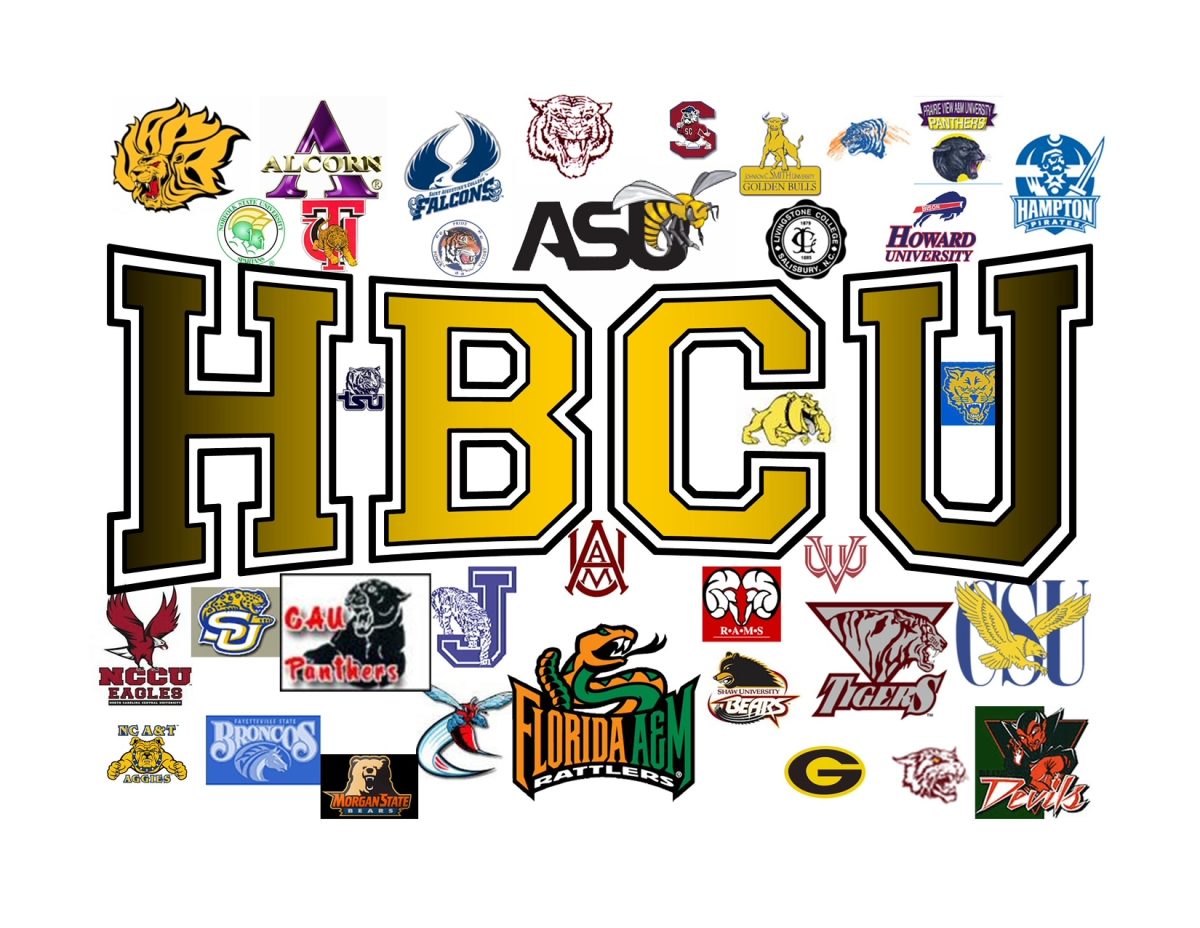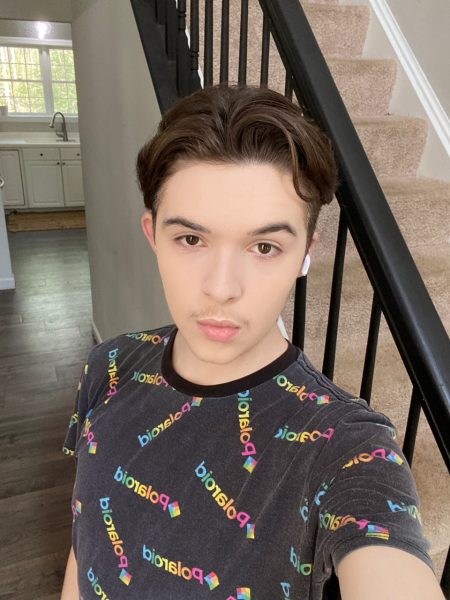Many upperclassmen are currently in the process of deciding what they intend to pursue in the near future. For many, the next step involves seeking higher education. While many students will choose to attend a PWI, or predominantly-white institution, there has been an increase in the number of students who are opting for an alternative, HBCUs.
HBCU is an acronym that stands for historically Black colleges and universities. During the Reconstruction era, HBCUs sprang up all across the southern United States. This was due to the fact that following the abolishment of slavery in 1865, African Americans were mostly prohibited from attending colleges and universities in the South. In response, HBCUs were established to provide access to higher education for African Americans and played a key role in both creating and growing the African-American middle class.
Today, there are 101 HBCUs in the United States, with five of them located in Virginia. While initially, HBCUs were the only opportunity for many African Americans aiming to pursue higher education, they now serve as a safe space for Black students to achieve educational goals and be immersed in a community of people with shared heritage and experiences. At a time when discrimination and hate crimes against Black people are on the rise, HBCUs offer Black students an option in which they are guaranteed a welcoming and safe environment.
Many students at Liberty High School are either considering applying to an HBCU or are intent on doing so. They cite reasons such as attending PWIs for the majority of their educational career, longing for a sense of community, and the desire for a space where they feel more comfortable.
For senior Kaylen Ulloa, the choice could not have been more clear. She plans on attending Howard University for sports medicine. “I want to walk into a classroom where everyone has brown skin like me. At PWIs, certain groups tend to stick together, whereas at HBCUs everyone hangs out with everyone,” said Ulloa.
Junior Adriana Lewis had her heart set on attending an HBCU from a very young age. She recalls watching The Cosby Show when she was little and admiring the character Trudy, who was played by Keshia Knight Pullman. The actress attended Spelman College, a private all-girls HBCU founded in 1881 in Atlanta, Georgia. Lewis, who plans on attending Spelman College as well, states “It’s a beautiful school and it took a lot to make that school for us. I would feel more comfortable there. I think it would be a great opportunity to learn from my own people. I’m excited to grow relationships with my sisters who look like me or even different because Black people come in all colors, shapes, and sizes.” She also commented on the culture in general at HBCUs, sharing her adoration for the energetic live bands and majorette girls she has seen in videos of performances online.
When asked why students should consider attending an HBCU, junior Aiden Yates, who plans on attending Virginia State University for its business programs, stated that “the experience at an HBCU would be better because it allows people to be surrounded by different people and cultures. For me, it would help me understand myself more than a PWI would. Attending an HBCU would be a fun experience for anyone, while also receiving a thorough education.”
While there are so many students at Liberty who are eager to attend an HBCU in the near future, there are also several alumni who have done so and speak very highly of their experience. John Logan, who was a senior at Liberty last year was offered an academic scholarship at Hampton University. He is currently majoring in kinesiology, intending to eventually become a sports physician. “Being at an HBCU allows me to connect with people of the same skin who often share similar traits and thoughts. Everyone here is so approachable. It’s an environment where everyone helps one another succeed. It’s an amazing feeling being around people who look like you,” said Logan.
There are even staff members here at Liberty who are HBCU alumni. Mr. Chase Beasley, who works in the counseling department, attended two HBCUs (Hampton University and Howard University, respectively). Throughout his childhood, Beasley found himself in spaces that were predominantly Black outside of school such as his church and sports teams, yet he still attended a predominantly White high school. After he graduated, he wanted to experience those aspects of his childhood, but all in one setting, including academics. After visiting Hampton University, his mind was made up. Beasley remarked that he felt at home as soon as he stepped foot on campus.
Most HBCUs pride themselves on a tight-knit, community feel in comparison to many PWIs where class sizes and campuses are larger and filled with unfamiliar faces. At Hampton University, this is especially true. “Classes were on a name basis. The president [at Hampton University] knew my name. There was a brother-sister program where the senior class looked out for underclassmen. Being at Hampton felt like being part of a family, as opposed to a number at a PWI,” said Beasley.
Another notable facet of the culture on HBCU campuses is Greek life. Made up of five fraternities and four sororities, the National Pan-Hellenic Council, more commonly referred to as the Divine Nine, has a strong presence on each HBCU campus. Fraternities and sororities at HBCU campuses are a lot more significant and respected than at PWIs. At HBCUs, they are not just temporary social clubs or an excuse to party. The nature of these groups is geared towards community, empowerment, and lifetime commitment, and it is not taken lightly. “Fraternities were so prominent back in the day at PWIs, and because we didn’t have the opportunity to have that, let alone go to PWIs, we took something and made it our own at our campuses. Every D9 is heavy on giving back to the communities around them. When you see us, respect it. It’s not taken lightly and it’s not easy. A lot of successful Black people today in the workplace are D9 and they take pride in that,” said Beasley.
“Going to an HBCU was a good fit for a young Black man trying to figure out where he fits in society. It gave me a sense of belonging. I am proud of who I am. I know where I belong in society, what I represent, and where I come from. I know what we have come through and overcome. I know what we continue to go through, but also preserve through. I take pride in what we bring to society, culture, and education,” said Beasley.









karli christenaen • Sep 6, 2023 at 1:16 pm
I thank this article as a good and fluent like a param
Connie • Sep 6, 2023 at 1:15 pm
What an extraordinary article!! Which can provide many curious students with answers!
Aidan Kroetz • Sep 5, 2023 at 1:25 pm
Great article! This article is a great starting point for Black students who are interested in HBCUs to dig a little deeper into their history and atmosphere!
Elena • Sep 5, 2023 at 1:20 pm
This article was very useful and it gave a lot of information on HBCUs, it answers many questions for students who want to look into attending these colleges.
MrsMoyer • Aug 31, 2023 at 8:22 pm
This article is amazing! Our students need to see this – thank you for writing this!